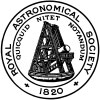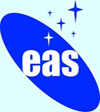Mercury - recent insights and future goals
Principal contact: D. A. Rothery (d.a.rothery@open.ac.uk)
Organisers: C. Carr (Imperial College London, UK), M. Laurenza (IFSI, Italy), D. Rothery (The Open University, UK)
Mercury is the least known terrestrial planet in the Solar System. Because it is an end-member in terms of proximity to the Sun (close), mass (low, unless you count the Moon) and density (high), we need to unravel Mercury's origin and evolution in order to understand the diversity that is possible among terrestrial planets.
Increasingly sophisticated ground-based observations, two 2008 fly-bys by NASA's MESSENGER in preparation for 2011 orbit insertion, and preparations for ESA's BepiColombo mission (2014 launch) now make it timely to review our knowledge of Mercury and to discuss the significance of this intriguing planet.
Contributions are invited that review recent insights, present new data, discuss models for Mercury's origin and evolution, or suggest important goals of current and future missions and observing campaigns. Contributions are welcome on aspects as diverse as: Mercury's core; its magnetic field; interactions of the surface, exosphere, and planetary environment with solar radiation, the solar wind and solar energetic particles (SEPs); Mercury's composition and origin; and the complexities of its geological history.
Scientific Programme
| Monday 20th April | ||
| 11:00 | Mercury: It's not the Moon! | David Rothery |
| 11:25 | Solar Energetic Particles in Mercury's Environment | Monica Laurenza |
| 11:45 | A New View of Mercury: What BepiColombo MIXS Can Expect to Find | John Bridges |
| 12:05 | The Mercury Imaging X-ray Spectrometer (MIXS) | Adrian Martindale |
| 12:25 | Discussion | |










